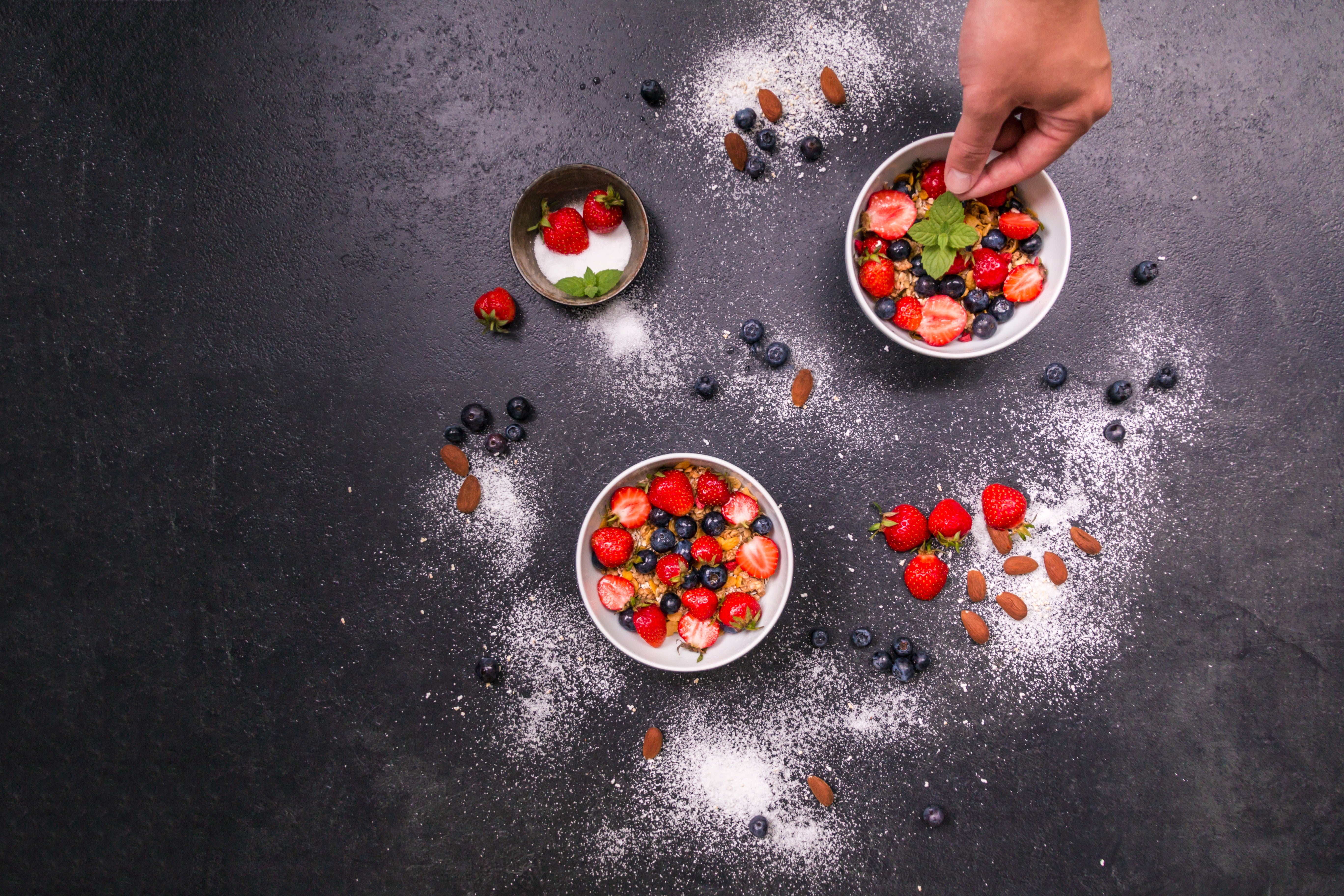
Sugar: A little goes a long way!
If you’ve ever tried to cut back on your sugar intake, you already know this tough truth: There’s added sugar in just about everything. In addition to the obvious foods, like certain breakfast cereals and sodas, there’s sugar in things like ketchup and barbeque sauce, spaghetti sauce, soup, granola, and yogurt.
And we’re not talking about a little bit of sugar, either; we’re talking about a lot of it.
Exactly How Much Sugar Are We Consuming?
According to the Office of Disease Prevention and Health Promotion’s 2015-2020 Dietary Guidelines for Americans, we should be consuming no more than 10% of our daily calories as added sugar. For someone averaging 2000 calories per day, that’s 10-12 teaspoons (about ¼ cup), or 40-48 grams. It’s a bit difficult to imagine consuming ¼ cup of sugar in one sitting—until you realize the average 12-ounce can of soda has nearly that much (39 grams). And how many soda-drinking people just have 12 ounces per day?
Fact: The average American consumes almost 152 pounds of sugar in one year. That’s more than 42 teaspoons per day—or four times the recommended amount.
As reported, by MarketWatch, nearly 50% of the added sugar in our diet comes from beverages, and 31% comes from snacks and sweets. In the beverage category, the breakdown looks like this:
- 25% - soft drinks
- 11% - fruit drinks (not including 100% fruit juice)
- 7% - coffee and tea
- 3% - sport and energy drinks
- 1% - alcoholic beverages
The Consequences of Too Much Sugar
The consequences of overindulging in sugar are well-documented. Added sugar (which, by the way, includes corn syrup, agave nectar, cane juice, sucrose, and more), can negatively affect:
- Your energy level. Consuming sugar provides a rush of energy followed by a crash.
- Your emotional health. A recent study made a link between sugar and depression in men.
- Your teeth. Dentists are smart people, eh?
- Your joints. Sugar can cause inflammation, which contributes to joint pain.
- Major organs like your skin, liver, kidneys, heart, and pancreas.
What About Sugar-Free Beverages and Foods?
If you’re feeling a bit smug right now because you opt for sugar-free foods and beverages, it’s important to understand most sugar-free products contain artificial sweeteners. And although those products have been approved by the Food and Drug Administration, they may nevertheless contribute to health concerns.
According to the Harvard Medical School, artificial sweeteners may give people a false sense of sugar security. For example, people who reach for a diet soda may justify eating a candy bar. Also, because artificial sweeteners are more potent than natural sugar, they may train our taste buds to crave sweeter and sweeter flavors over time, making it less likely we’ll opt for healthy choices.
Everything in Moderation
It’s difficult to completely avoid added sugar in our diets. The goal, then, is to be aware of how much sugar you’re consuming and to be intentional about the amount and source of that sugar. If you know you’ll be celebrating a friend’s birthday with cake and ice cream, be cautious about sugar intake earlier in the day. Or, choose either cake or ice cream, even though that’s not nearly as fun.
And given that 50% of added sugar in our diets comes from beverages, try to avoid sweetened drinks by taking on a water challenge instead.
Making Healthy Energy Beverage Choices
Many energy beverages contain a shocking amount of added sugar, and those that boast zero calories are usually full of artificial ingredients, including sweeteners.
By contrast, pureLYFT offers clean caffeine from un-roasted green coffee bean, vitamins A and B complex, and a tiny amount (less than 1 mg) of Stevia, a natural sugar substitute. Try some today for a healthy energy boost you can mix with any beverage.